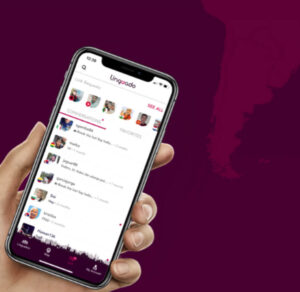 If you haven’t yet heard, Google is preparing to unveil the latest in translation technology: Augmented Reality glasses capable of instantly translating more than 133 languages into captions in the wearer’s field of vision (check it out for yourself here). While this product isn’t expected to hit shelves until it’s authorized by the Federal Communications Commission, if you’re gearing up to travel internationally this year, there are still several apps to consider downloading for on-the-go translation and language learning:
If you haven’t yet heard, Google is preparing to unveil the latest in translation technology: Augmented Reality glasses capable of instantly translating more than 133 languages into captions in the wearer’s field of vision (check it out for yourself here). While this product isn’t expected to hit shelves until it’s authorized by the Federal Communications Commission, if you’re gearing up to travel internationally this year, there are still several apps to consider downloading for on-the-go translation and language learning:
DeepL, a German application available free for iOS or Windows, is Google Translate’s biggest rival. Using artificial intelligence, the application provides more refined translations than Google’s algorithms, and is thought to be as much as three times more accurate than its closest competitors. While the app is free, it does require a stable internet connection to run.
Both Duolingo and Rosetta Stone remain top picks for travelers looking to pick up the local language before they arrive. As of this year, Duolingo supports 41 distinct languages (38 of which are for English speakers) for a fee of $12.99 per month (free with advertisements), and Rosetta Stone boasts 25 distinct languages to choose from at a price of $44.99 for three months of subscription access. Both apps are available on the web or for download on the app store.
For the more tenacious language learners, applications such as Babbel, Busuu, and Linguado encourage travelers to seek out and connect with native speakers of the language in order to learn through real-life immersion. Alexander Kaplan, founder of Linguado, considers his platform a “social version” of apps like Duolingo or Rosetta Stone. These applications, in addition to providing online language education resources, connect local users interested in language exchange. Babbel, a flashcard-based program, runs users about $13.99 per month, Busuu costs $10.99 per month, and Linguado is free for now and available both online, on Google Play, and on the App Store.